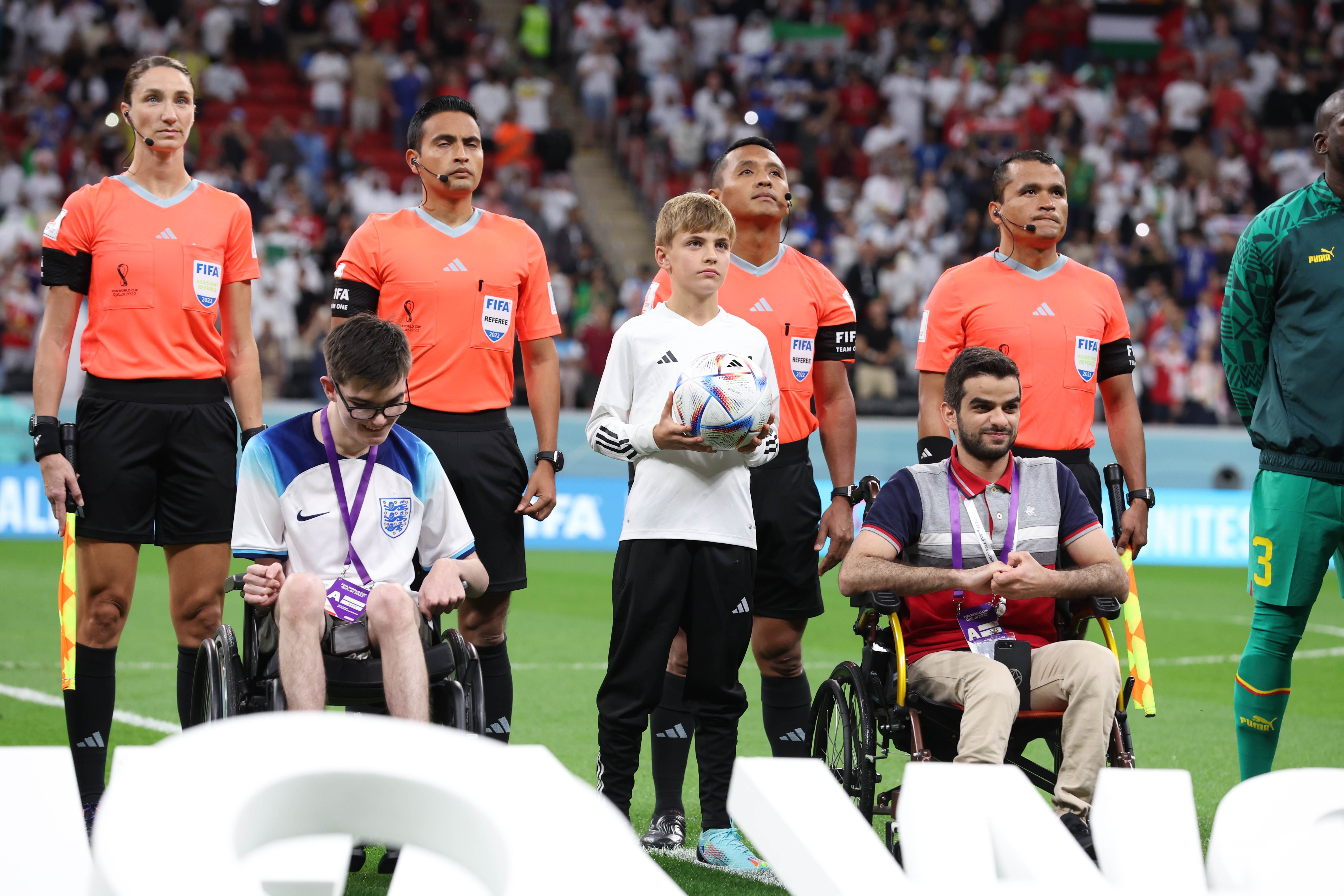MIAMI, Florida – The year 2022 will go down as a landmark year in the history of Concacaf for a multitude of reasons. Not only did four Concacaf nations represent the region in the FIFA World Cup Qatar 2022, but two women referees from the Concacaf region were part of a history-making group at the tournament.
As part of Concacaf’s countdown of the best 22 moments from 2022 in the region, here are the top stories from the past year with regards to the FIFA World Cup.
Referees Karen Diaz and Kathryn Nesbitt make history
Referee Karen Diaz Medina of Mexico was part of a history-making crew for the Germany-Costa Rica match in Group E of the FIFA World Cup Qatar 2022, with Diaz serving as an Assistant Referee on the first ever all-female refereeing trio to take charge of a Senior Men’s World Cup match.
Diaz was one of six women referees at the World Cup, along with Kathryn Nesbitt of the United States, who worked as one of the Assistant Video Assistant Referees in the Germany-Costa Rica contests. Nesbitt was designated as the Offside VAR.
Nesbitt would go on to serve as an Assistant Referee during the Round of 16 match-up between England and Senegal.

Canada score first ever Senior Men’s World Cup goal
In their first Senior Men’s World Cup at Mexico 1986, Canada were unable to get on the scoresheet, but it was a different story this year at Qatar 2022. Just 68 seconds into their second group stage match against Croatia, Alphonso Davies soared into the area to smack home a historical header, giving Canada their first-ever Senior Men’s World Cup goal.
It was also the first time that Canada ever held a lead in a World Cup match and Davies’ score just barely over a minute into the game is thus far the fastest goal at the FIFA World Cup Qatar 2022.
Canada would also find the back of the net in their group stage finale against Morocco, as an own goal in the 40th minute from Morocco’s Nayef Aguerd gave Canada their second Senior Men’s World Cup goal. It was also the 100th goal scored at Qatar 2022.
Young stars play big roles for Concacaf teams at Qatar 2022
Without question, the FIFA World Cup Qatar 2022 will be remembered within the Concacaf region as the tournament when many of the region’s young stars got their first taste of Senior World Cup action.
The U.S. reached the Round of 16 with a 26-player roster in which 25 players had never appeared in a World Cup. Of those 25 players, 12 of them were aged 24 or younger, including MF Yunus Musah, who became the second-youngest player to play for the United States in the knockout stage of the FIFA World Cup at the age of 20 years and four days.

Playing in their first Senior Men’s World Cup in 36 years, every Canada player that saw the field was making their World Cup debut, and six of those players were 24 or younger.
Leading the way for Costa Rica’s youth movement was winger Jewison Bennette, who at the age of 18 years and 161 days became Costa Rica’s youngest ever player to make an appearance in the FIFA World Cup. Overall, Costa Rica had seven players younger than 24 playing at Qatar 2022, including two teenagers, Bennette and Brandon Aguilera, who played in all three games for the Ticos.

Some exciting young talent was also on display for Mexico, namely DF Jorge Sanchez and DF Kevin Alvarez, who each appeared in two of Mexico’s three games at Qatar 2022. FW Roberto Alvarado was another young player who saw time for Mexico, as the 24-year-old Chivas man came off the bench in Mexico’s second contest with Argentina.
FIFA announce 2026 World Cup host cities
Eleven cities from the U.S. were selected to host games: Atlanta (Georgia), Boston (Massachusetts), Dallas (Texas), Houston (Texas), Kansas City (Missouri), Los Angeles (California), Miami (Florida), New York/New Jersey, Philadelphia (Pennsylvania), San Francisco Bay Area (California) and Seattle (Washington).
Boston, Dallas, Los Angeles, New York/New Jersey and the San Francisco Bay Area were all sites when the U.S. hosted its first world cup in 1994.
History will be made with Mexico hosting matches in 2026, as it becomes the first country to host three difference FIFA World Cups, having previously hosted in 1970 and 1986. Guadalajara, Monterrey and Mexico City will serve as Mexico’s host cities in 2026.
Canada will host the World Cup for the first time, with matches scheduled to be played in the following cities: Vancouver (British Columbia) and Toronto (Ontario).
The 2026 FIFA World Cup marks the fourth time that the World Cup will be played in the Concacaf region and will be the first time that the tournament features 48 nation.





















